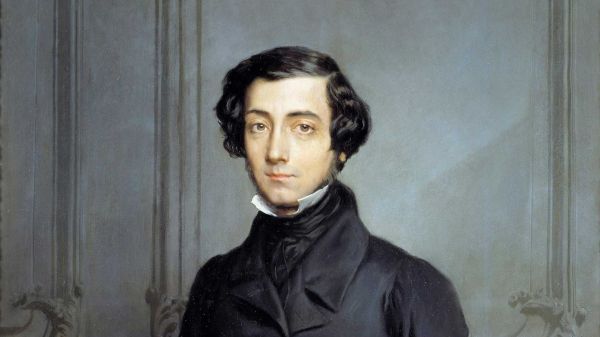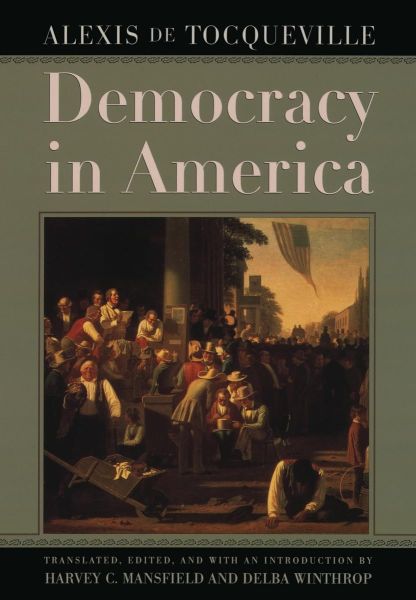Alexis de Tocqueville
Alexis de Tocqueville
I find Alexis de Tocqueville's name mentioned by a variety of Facebook bloggers, from the political Left as often as from the Right. De Tocqueville appeals to bloggers for the same reason that George Orwell does. Both have a reputation as maverick thinkers. The Wikipedia article on de Tocqueville states that "the complex and restless nature of his liberalism has led to contrasting interpretations and admirers across the political spectrum."
Wikipedia continues that de Tocqueville started his political career in the "center-Left," then transitioned to the "center-right." He had education and functioned independently of any political traditions; but I thought this guy has to have underlying intentionality and purpose in his thinking. He couldn't start each day with a blank philosophical slate. So I decided to dig into what he said and wrote, to get a better idea about him.
De Tocqueville published his landmark book Democracy in America in 1835. To have such a prescient, forward-thinking appraisal of our country so early in our history just amazes me. On its surface, our nation functions as a Republic. Under the surface, de Tocqueville writes, the population expects a paternalist government, akin to a monarchy.
- "What good does it do me if an ever-watchful authority keeps an eye out to ensure that my pleasures be tranquil, sparing me the need to think about such things? If that authority is also absolute master of my liberty and my life, then everything around it must languish.
When it sleeps, everything else must also sleep; and when it dies, everything else must also perish. - There are some nations in Europe whose inhabitants think of themselves as colonists, indifferent to the fate of the place where they live. The greatest changes occur in their country without their cooperation. They are not even aware of precisely what has taken place.
- They think that such things have nothing to do with them, but belong to a powerful stranger called "the government." They enjoy these goods as tenants, without a sense of ownership. They are so divorced from their own interests, they cross their arms and wait for the government to come to their aid. Yet as utterly as they sacrifice their own free will, they are glad to defy the law as a defeated enemy. Thus, one finds them caught between servitude and rebellion.
- Above this race of men stands an immense and paternal power, which watches over their fate, like the authority of a parent. But unlike a parent, its object is not to prepare boys for manhood. On the contrary, it keeps them in perpetual childhood. What remains but to spare them all the care of thinking and all the trouble of living?
- The American struggles against the obstacles which nature creates; the adversaries of the Russian are men. The conquests of the American are therefore gained with the ploughshare; those of the Russian by the sword. The American relies upon personal interest to accomplish his ends, and gives free scope to unguided strength; the Russian centers all the authority of society in a single arm. The principal instrument of America is freedom; the Russian servitude.
- When the exercise of the intellect became a source of strength and wealth, we see that every fresh truth, every new idea became a germ of power placed within the reach of people. Poetry, eloquence, and memory—the graces of the mind—cultivate the fire of imagination, depth of thought, and all the gifts which Heaven scatters for our use.


